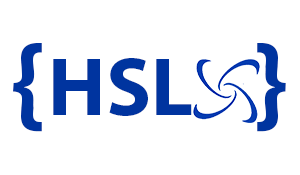What is Performance Management about?
High Score Labs News • Jul 22, 2020
The employees are the most important asset in any organization. In order to make the most fruitful use of the asset, organizations are steadily seeking ways for more useful evaluation to gauge employee performance. Companies have embraced performance management tools powered by technology.
What is a Performance Management System?
Performance management is a process of continuous communication between the employee and the employer to help them accomplish the imperative objectives of the organization. Performance Management systems facilitate the fulfilment of employee and corporate goals and empower you to track and review the individual performance of employees, teams, and the organization overall. There are several other benefits of the performance management system, such as:
- Helps in presenting data to find the skill issue and knowledge gap in employees to improve their skills and polish their knowledge through training and mentoring.
- Alleviates any disputes or grievances through the performance evaluation system.
- Fair and accurate assessment of employee’s performance against the set targets and metrics.
- Precise performance targets to encourage employees to deliver better results.
- Provides the platform for management to review, improve and draft specific goals for departments.
Components of Performance Management System
- Self – Assessment: this ensures that employees are well-aware of where they stand in terms of progress and prepare them for their performance appraisal. It also engages employees for enhanced performance and goal settings.
- 360-degree feedback: feedback about employees from each other and other diverse sources prominently reduces the bias that can otherwise arise from the evaluation of a just single employee or a specific group.
- Planning: chalking plan for the knowledge, quality and level of expertise the employee should acquire to meet personal and company objectives, which further form a part of the organizational strategy.
- Performance evaluation: the frequent periodic ‘check-ins’ to evaluate an employee’s level of performance on a given set of assignments. This also enables one to make amendments mid-way if any issues or deviations are identified.
- Personal Development: This is an essential component of a performance management system that assist employees to boost their potential and accomplish their performance goals.
Performance Management System Stages
Plan:
- Reach a mutual understanding of the set SMART goals.
- Formulate a blueprint of a tailor-made development plan based on the team, individuals and issues that need to be addressed.
- Re-evaluate employee’s job information and change the role if required which serves best for the employee and the organization overall.
Implement:
- Accomplish all the determined goals.
- Perform the necessary functions within set timelines and quality metrics.
- Set all the demanded personal development plans in place, ready for implementation.
Monitor:
- Periodic and regular monitoring of the development and goals achieved and how much of it is left.
- Give and Take frequent feedback on anything and everything that can impact overall or individual performance.
- Handle obstacles through strategic planning.
Review:
- Review all small&big, weekly, monthly&annually, individual, team-wise and overall accomplishments.
- Re-iterate on the lessons learnt.
- Calculative and careful on career goals.
- Accord on next action goals as planned.
To conclude, Performance Management System is aimed at enhancing the organization’s bottom line by assisting them to move from irregular year-end performance reviews to established, frequent feedback and consequently driving employee performance by linking employee workforce goals with organizational goals with a shared mission.
Contact us today!






